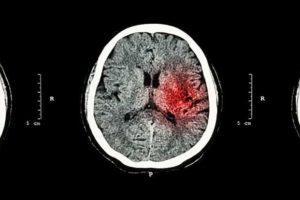journal of the national cancer institute
Widely used arthritis pill protects against skin cancer
A widely-used arthritis drug reduces the incidence of non-melanoma skin cancers — the most common cancers in humans — according to a study published this week in the Journal of the National Cancer Institute. The COX-2 inhibitor celecoxib (brand…
Prostate cancer treatment linked to higher rate of colon cancer, study finds
ANN ARBOR, Mich. — Men treated with hormone-based therapy for prostate cancer faced a 30 percent to 40 percent higher risk of colorectal cancer, compared to patients who did not receive this treatment, according to a new study.
The study looked…
Novel target for existing drug may improve success of radiation therapy
Scientists at Washington University School of Medicine in St. Louis have discovered a new drug target that could improve the effectiveness of radiation for hard-to-treat cancers.
The finding, published in the Journal of the National Cancer Institu…
Beta carotene may increase cancer risk in smokers and drinkers
Smokers and drinkers who take beta-carotene supplements to help prevent cancer may actually increase their risk, new research finds. The study, led by Dartmouth Medical School (DMS), provides a cautionary perspective regarding the alleged cancer-fighting attributes of beta-carotene and other antioxidants. It is published in the May 21 issue of the Journal of the National Cancer Institute.
Study Questions Frequent Follow-Up for 'Probably Benign' Mammograms
Of the nearly 30 million American women who undergo screening mammograms every year, up to 11 percent receive “probably benign” test results — and therefore are asked to come back for a follow-up mammogram in three to six months. But according to a new study by UC Davis researchers, such frequent re-testing may be unnecessary. The study appears in tomorrow’s issue of the Journal of the National Cancer Institute. The UC Davis researchers examined the mammography records of nearly 60,000 women enrolled in the national Women’s Health Initiative project, one of the largest preventive health studies in the United States. Among the women who had probably benign mammograms, only 1 percent went on to develop breast cancer within two years, the investigation found.
Oral drug turns on silenced genes, turns off cancer
Oral administration of a drug that inhibits a process known as DNA methylation results in a reduction in the size of malignant tumors in mice, according to a team of researchers led by scientists from the Keck School of Medicine of the University of Southern California. The drug, called zebularine, accomplishes its tumor-whittling by turning on tumor suppressor genes that have been turned off by methylation.
Iron overload gene tied to colon cancer increased risk
Researchers have found that people with gene mutations associated with abnormally high iron levels are 40 percent more likely than others to develop colon cancer. A report of the research published in the Journal of the National Cancer Institute today (Jan. 15) found the cancer risk greater in mutation carriers who are older or who consume high quantities of iron.
Hormone Therapy Associated With Increased Breast Density
A new study suggests that the use of combination hormone therapy is associated with a modest increase in breast density, which is a known risk factor for breast cancer. The findings appear in the Jan. 1 issue of the Journal of the National Cancer Institute. The degree of breast-cancer risk that is associated with breast density is greater than that associated with almost all other known breast-cancer risk factors. A previous analysis of data from the Postmenopausal Estrogen/Progestin Interventions (PEPI) Trial, a randomized trial looking at the effects of postmenopausal hormone therapy (estrogen alone or estrogen plus three different progestin regimens) on breast density, showed that some women who used combination estrogen/progestin therapy experienced an increase in breast density. However, the analysis did not look at the magnitude of that increase.
Test could reduce need for biopsies in prostate disease
 Men who test positive for elevated prostate specific antigen (PSA) levels sometimes freak out because they think it means they have cancer. To find out, a surgeon will often perform a biopsy. But researchers from the National Cancer Institute and the Food and Drug Administration report that a new test using a single drop of blood could help distinguish between prostate cancer and benign conditions. The trick is identifying patterns of proteins found in patients’ blood serum.
Men who test positive for elevated prostate specific antigen (PSA) levels sometimes freak out because they think it means they have cancer. To find out, a surgeon will often perform a biopsy. But researchers from the National Cancer Institute and the Food and Drug Administration report that a new test using a single drop of blood could help distinguish between prostate cancer and benign conditions. The trick is identifying patterns of proteins found in patients’ blood serum.


